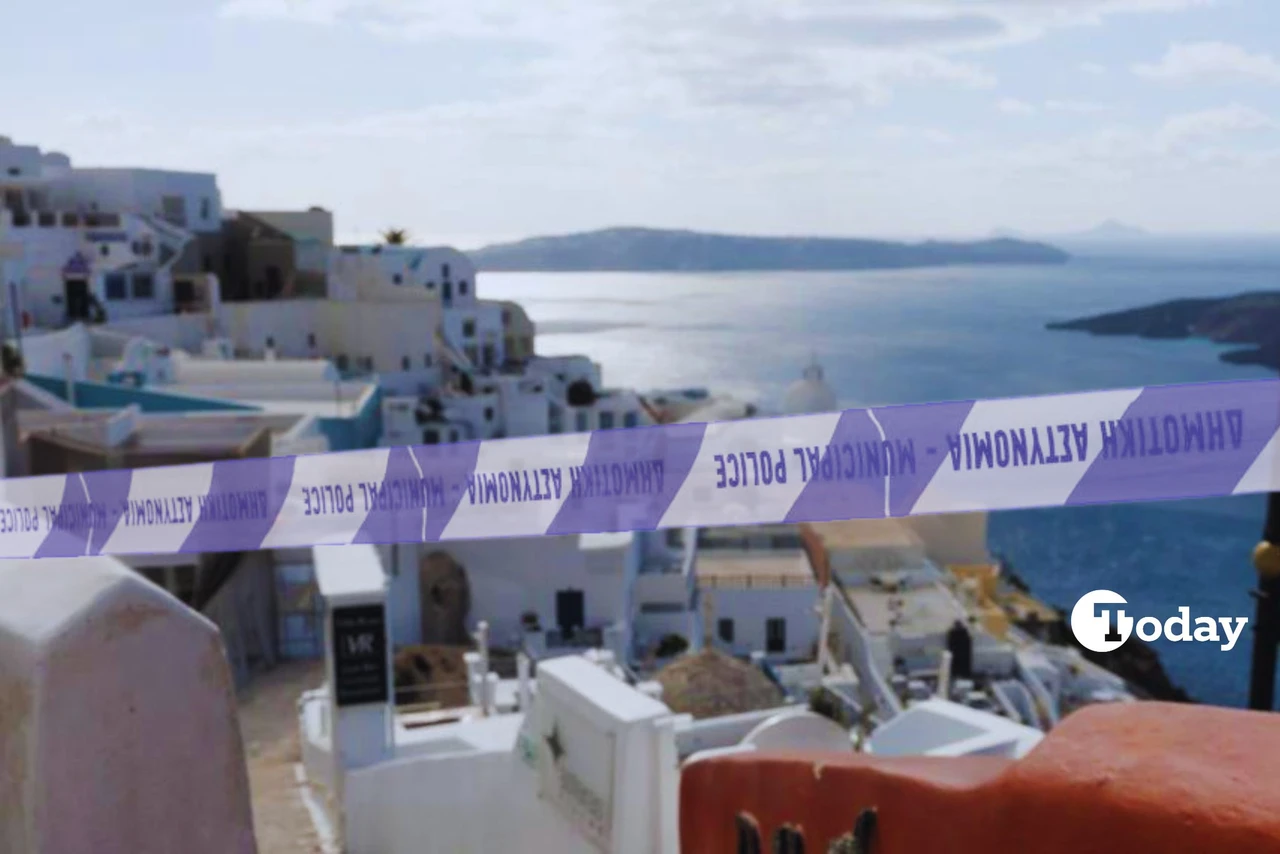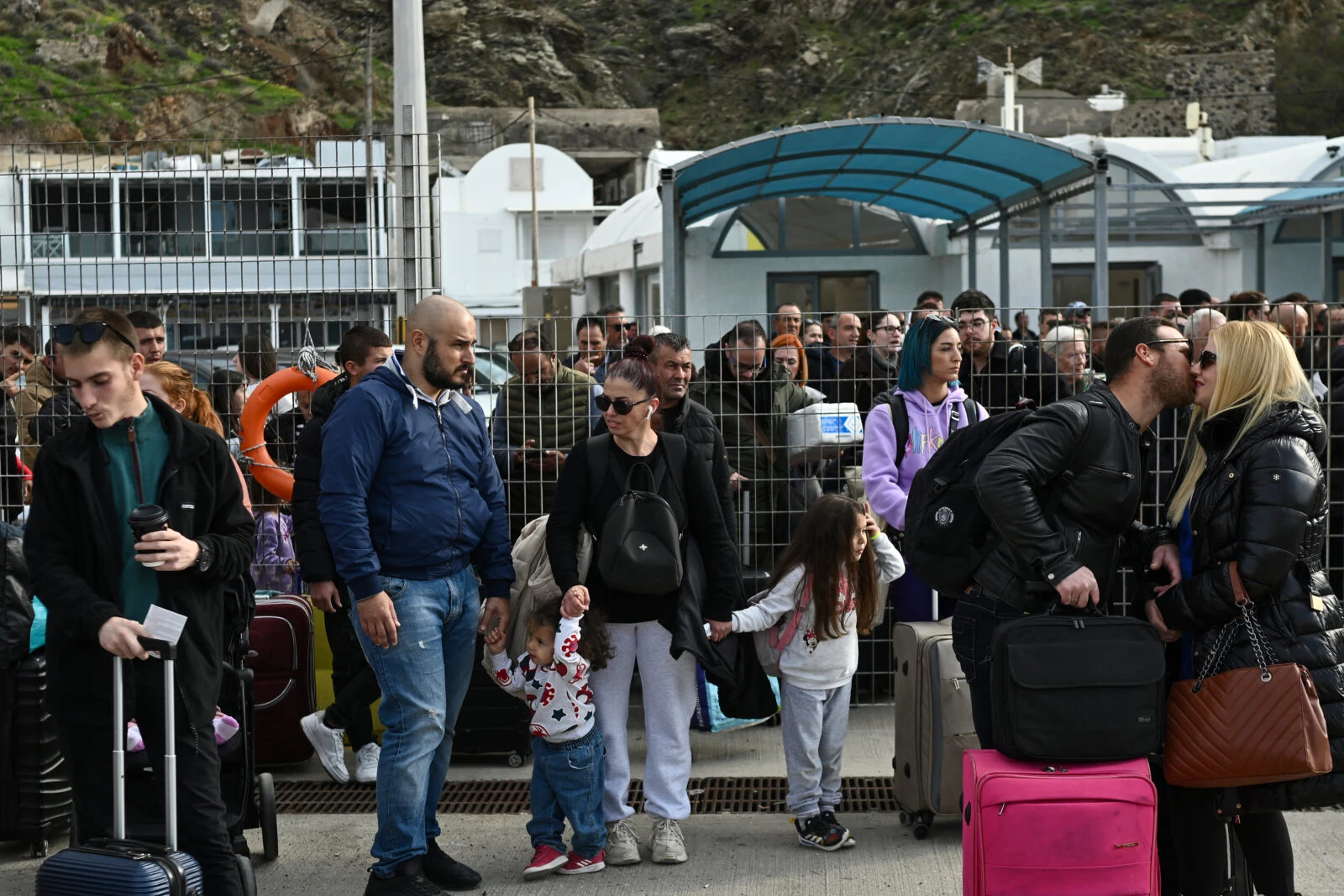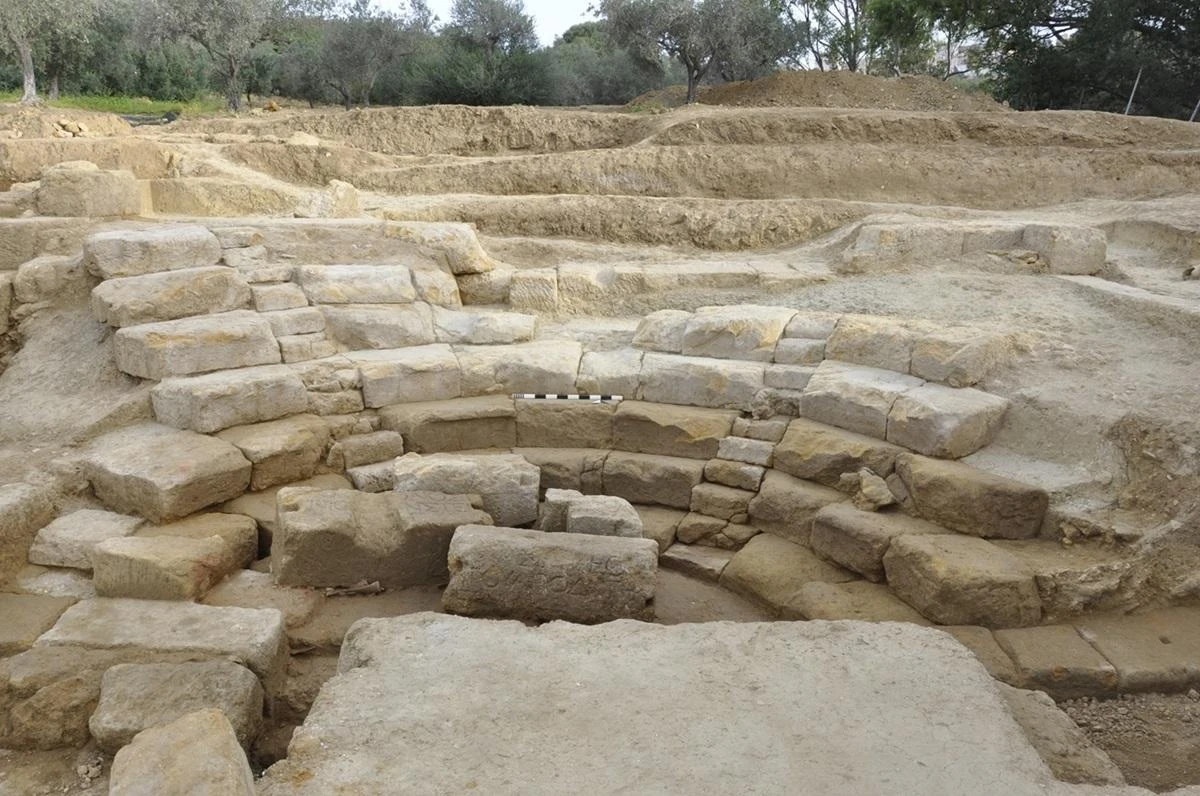Is tourism at risk? Assessing economic impact of Santorini’s quakes
 Santorini declares state of emergency after the earthquakes, Santorini, Greece, Feb. 2025. (Photo via Türkiye Today)
Santorini declares state of emergency after the earthquakes, Santorini, Greece, Feb. 2025. (Photo via Türkiye Today)
Greece has declared a state of emergency on the popular tourist island of Santorini after a series of earthquakes rocked the region for more than a week. The strongest tremor, measuring 5.2 on the Richter scale, struck Wednesday, February 5, raising concerns about the island’s stability. About one-third of Santorini’s 15,000 residents have already been forced to evacuate. Smaller tremors continue to be recorded, keeping the local population on edge.
The ongoing seismic activity in Santorini threatens not only the island’s physical landscape but also its economic stability. According to a recent analysis by the National Bank of Greece (NBG), the tremors have the potential to disrupt one of Greece’s most valuable economic sectors: tourism.
Speaking to Türkiye Today, Professor Andreas Papatheodorou, a distinguished academic researcher and industry advisor specializing in air transport and tourism economics, evaluates the potential scenarios.
Economic and tourism implications
Santorini is one of Europe’s most visited islands, drawing millions of tourists annually. With tourism playing a vital role in Greece’s Gross Domestic Product (GDP), any prolonged disruptions to the island’s tourism sector could have significant economic repercussions.
Last year, one-fifth of Greece’s economy was derived solely from tourism revenues. The National Bank’s report highlights that Santorini alone contributes about 4% of the country’s annual tourism revenue, or an estimated a€820 million ($844 million) of Greece’s total €20.5 billion ($21.1 billion) tourism earnings in 2023. When considering the Cyclades as a whole, this figure rises to nearly 10%.
The island’s hospitality industry, comprising 1,216 accommodation establishments, generated nearly €500 million ($515 million) last year, while its 712 food service businesses recorded revenues approaching €200 million ($206 million).
Greek Prime Minister Kyriakos Mitsotakis visited the island and urged residents to remain calm.
Emphasizing that authorities are closely following expert recommendations, Mitsotakis reassured the public, saying, “We will continue monitoring the situation, but we will not jump to scientific conclusions. Residents of Santorini and other islands remain under the protection of the state.”
The Greek government remains optimistic that normalcy will return soon.
The outlook for Santorini’s tourism industry
While the recent earthquakes have fortunately not resulted in casualties, the impact on Santorini’s tourism sector remains a major concern. The island, known for its luxury tourism, is home to a significant number of high-end hotels and resorts.
Dr. Andreas Papatheodorou believes the long-term impact will depend on the duration and severity of the seismic activity. He notes that if the phenomenon peaks within the next few weeks without causing major damage, the effect on tourism could be minimal. Since the island’s not caught during the peak tourist season, businesses and authorities still have time to make necessary preparations.
In a bad scenario where strong tremors persist, the economic situation has still its chance not to be affected disproportionately, Papatheodorou believes, pointing out that the Greek mainland can still accommodate a substantial share of tourist demand, mitigating potential losses. However, if tourists divert to destinations outside Greece, such as Spain or Portugal, the negative consequences for the country’s tourism industry could be more pronounced, though there is no early indication of it seen so far.

Potential volcanic eruption
Santorini is home to an active volcano, raising concerns that the recent seismic activity could signal a potential eruption. There are 20 known supervolcanoes worldwide, including the massive magma chamber beneath Yellowstone National Park in the United States and the Campi Flegrei caldera near Naples, Italy. To be classified as a supervolcano, a volcanic system must have the potential to produce an eruption of magnitude 8 on the Volcanic Explosivity Index (VEI).
Santorini lies approximately 170 kilometers (105 miles) from Türkiye’s Bodrum coastline.
The island’s last recorded volcanic eruption occurred in 1950. Over the past year, scientists have observed increased volcanic activity in the area, but it remains uncertain whether the ongoing tremors signal a major event or are merely aftershocks with no long-term consequences.
Uncertainty surrounding duration of earthquakes
Predicting the duration of the seismic activity remains difficult. The recent 5.2-magnitude earthquake on Wednesday night has heightened concerns among both residents and experts. Professor Joanna Faure Walker of the Institute for Disaster Risk Reduction at University College London (UCL) has noted that while small tremors can precede larger earthquakes, the current pattern in Santorini does not entirely align with previously studied cases.
Authorities have warned residents that the seismic activity could continue for days or even weeks. Police and military personnel have been deployed to the area as a precautionary measure. For now, Santorini’s future remains uncertain, with residents, businesses, and experts anxiously awaiting further developments.



